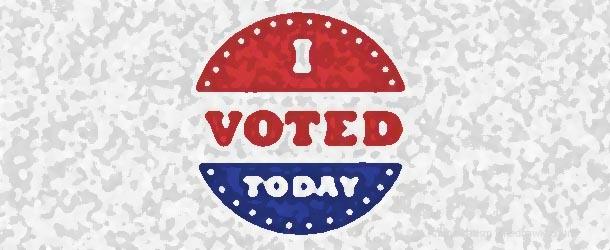Young voters: the political wildcard
Televisions are constantly flooded with ads, quotes, endorsements and updates. Newspapers frequently feature the latest on the campaign trail. Election year has come around, and that means a large portion of the seniors will have the opportunity to carry out their young right of voting in November.
As Rick Santorum suspended his campaign due to family issues, Mitt Romney starts his presidential campaign, and Barack Obama, the current president, searches for endorsements and support on the campaign trail. That means students are faced with the reality that voting is now an exercisable right.
During the 2008 election, the youth were in the spotlight for the role they played in electing Obama. His message of change and hope appealed to the 18-to-29-year-old age bracket. According to the Center for the Study of the American Electorate, 51 percent of youth voters came to the polls, the highest since the 1960 election. With Obama receiving 68 percent of the vote to McCain’s 30 percent, according to MSNBC.
This upcoming election is suggested to yield less-impressive results. A Gallup survey states that only 48 percent of youth are excited to vote this election, down from 76 percent in 2008.
While President Obama is speculated to win the youth vote overall, the lack of youth at the polls could play a pivotal role in the 2012 election. Obama’s loss of support from voters 18-29 could be because he did “not fulfill the hope invested in Obama the candidate.”
Earlier in the election season, Republican candidate Ron Paul had attracted a large number of votes from students across campuses nation-wide, due to his Libertarian ideology.
Claiming to be the “Party of Principle,” the Libertarian motto states: “Minimum Government, Maximum Freedom.” This startling slogan was embodied in Paul as he asserted idealistic statements that intrigued the youth. Although Paul’s campaign faded, young voters continue to find hope in a new candidate.
As products of the ’90s, the latter portion of emerging voters’ lives have seen recession, terrorist attacks, a wild economy and more.
“You have to think that if you’re coming of age as a voter right now, you’ve had a pretty intense political climate, bad economy for that past three or four years, prior to that pretty nasty war situation,” said history teacher Nathan Johnson. “Back to 9/11 you’ve had a dark cloud for the past decade. If you’re 18 or 20, politically all you remember is that dark cloud.”
Obama’s struggle to resonate with the youth and ignite the passion as he did in the 2008 election comes from the inability to “hype” on the campaign trail, because his previous years in power almost play the role of a lie-detector.
“Being at minority party status allows you to play the idealogy up,” said Johnson. “Because you know you’re not going to take power anyway. [Ron Paul] has said when people ask him if he expects to be president, he says no. What matters is the idealogy.”
As the date of the election approaches, more and more students will have the ability to vote. Regardless of party, know what the candidates stand for, and be practical.

